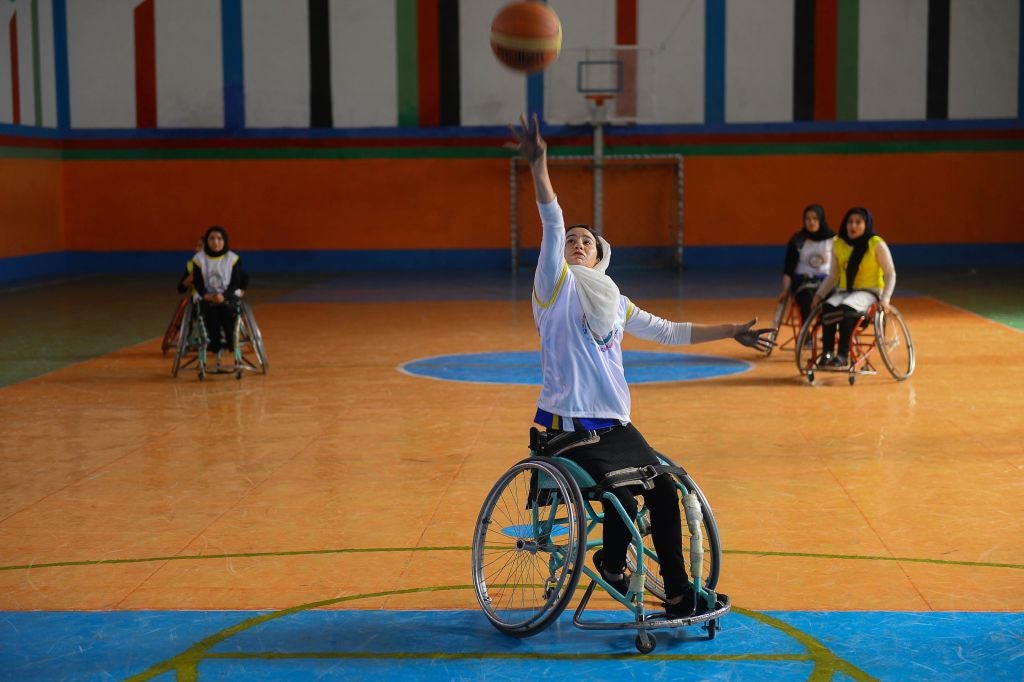I am a proud disability activist but know almost nothing about the history of our movement – it is time for change
Disabled people are not a monolith and our stories and history deserve to be told, so that the next generation of disabled activists are not left in the dark


I have been a proud disability activist for almost five years now, using my voice to speak up about everything from the plastic straw ban to access on public transport and inaccessibility in theatres. But despite my strong identity as a disabled person, I am ashamed to admit I know little of my own history.
As Disability History Month approaches in the UK I’ve been thinking more and more about how many gaps there are in my knowledge of disability rights and the battles fought to afford me the rights I have today. My activism has been so focused on the here and now, and on fighting for a better future, that I’ve spent little time educating myself on what led us here. And it is me having to educate myself – because this isn’t something they teach in schools.
The history I know has been picked up from older disabled people via social media over the years and is compiled of knowing that the Disability Discrimination Act existed before the current Equality Act, and that at some point disabled people chained themselves to buses to achieve equal access. I wouldn’t exactly call that a wealth of knowledge. The more I dwell on how little I know, and the less I honour the struggles of previous generations, the more ashamed I am to call myself an activist.
It was the release of Netflix’s Crip Camp, a documentary about a summer camp for teens with disabilities, that had me first confronting my lack of awareness. I remember seeing tweets from non-disabled people saying they had no idea about America’s disability history; I also remember sharing those feelings.
Whether you are born disabled or acquire a disability later in life, no one hands you a guide or a manual on how to navigate life. No one teaches you about your history and so we are left to fill in the gaps ourselves. I’m a big believer that we need to know where we’ve come from, so we can look towards the future.
Of course there is a danger that looking back provides an excuse not to strive for more. Comments like, “Look how far we’ve come” or “20 years ago you wouldn’t be able to do the things you do today” should not be used as a reason to compromise. There is a culture of disabled people having to be grateful for whatever they are given in society and comments like these contribute to that.
I want to fight this culture while still celebrating the people and movements that got me where I am today. I want to honour the individuals who laid the foundations for the work that myself and other disability activists are currently doing. Finding this information is not easy, though; I look at other equal rights movements and I know who the prominent figures are but finding the names of the revolutionaries who kickstarted the disability rights movement is a lot harder.
During previous efforts to learn more, the name that kept coming up was Dr Ludwig Guttman, the founder of the Paralympics. There is no denying his part in the disability rights movement but he is a non-disabled man. Where are the articles and the history about the disabled people who protested on the frontline? Where are their stories?
I’ve often clashed with older disability activists who believe younger people like myself don’t recognise the past as much as we should, and while I agree that we don’t have as much knowledge as we’d like, I also want to demonstrate how hard it is to come by that knowledge. We should be telling the stories of disabled people from yesterday, today and tomorrow. Disabled people are not a monolith and our stories and history deserve to be told, so that the next generation of disabled activists are not left in the dark, as we have been.
For me, the upcoming disability history month is as much a chance for me to educate myself as it is for non-disabled people to educate themselves – and I’m no longer ashamed to admit that.
Join our commenting forum
Join thought-provoking conversations, follow other Independent readers and see their replies
Comments

Bookmark popover
Removed from bookmarks